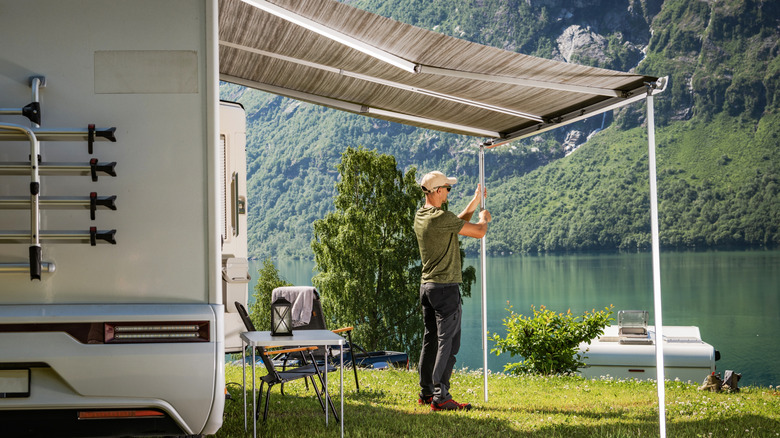There’s something truly special about RV travel. You pack up your home on wheels, stock the mini-fridge with snacks, and get ready to hit the road with your windows rolled all the way down. Compared to traditional vacations, RV travel offers an unparalleled level of freedom to explore everything, from national parks to coastlines to mountains, and pretty much everywhere in between. And let’s be honest, nothing beats the excitement of waking up to different views every morning without having to leave the comfort of your own space.
After all, the flexibility of bringing your accommodation with you means you can go pretty much anywhere without worrying about hotel availability or inflated prices in tourist hotspots. That said, this type of travel also comes with its own set of challenges that can easily derail your RV trip. From ensuring your RV stays clean and functional to finding the right dump stations and navigating tight campground roads, RV travel tests your problem-solving skills in some pretty unexpected ways. However, the most significant challenge of RV travel happens before you’ve even started your engine: securing a campsite reservation.
The realities of modern-day RV travel
More tips for securing an RV campsite
Besides simply hoping for the best, there are several other ways to approach RV reservations to help improve your chances of success. First, make sure you research each campground’s specific reservation policies before making any booking attempts. You’ll also want to create accounts on all booking platforms in advance, so that you can move quickly when spots become available. Beyond that, consider calling campgrounds directly instead of only relying on online booking — staff often know about recent cancellations or can add you to waitlists.
Another great way to succeed is to use technology to your advantage. Campsite availability apps like The Dyrt, Hipcamp, and Campspot compile campgrounds in your target area and usually let you filter them based on RV size, required hookups, and amenity preferences. Most of these platforms also include user reviews and photos that provide more accurate information than official websites. Better yet, they can even alert you to any last-minute cancellations at popular destinations, potentially saving you from the dreaded “fully booked” message.
Finally, try looking beyond popular destinations to increase your options. If your campsite is fully booked, consider hitting up less-visited parks where you won’t have to deal with that much competition. In most cases, first-come, first-served campgrounds remain available — especially if you arrive mid-week or early in the morning. Additionally, public lands that offer boondocking (aka, camping without hookups to water, electricity, or sewer) provide beautiful alternatives for more self-sufficient RVers who don’t mind going back to basics.



